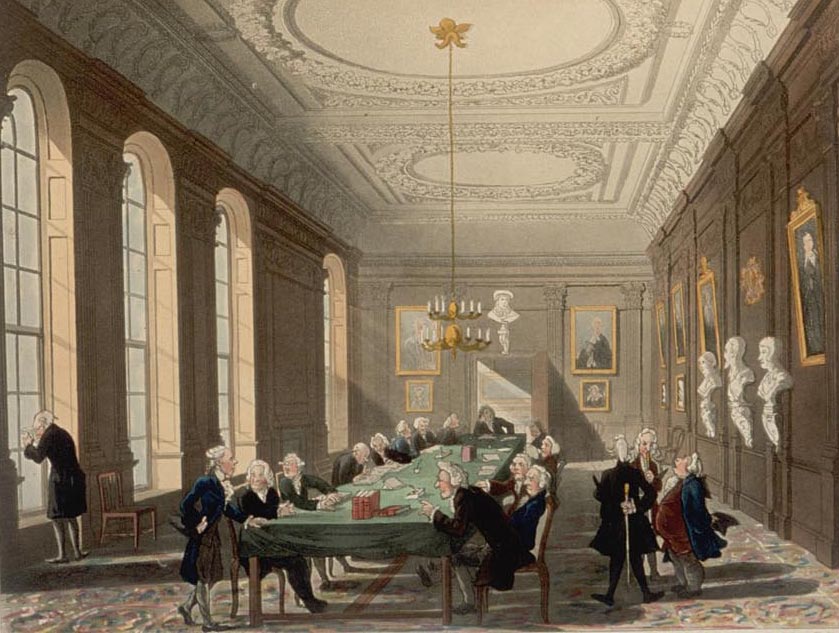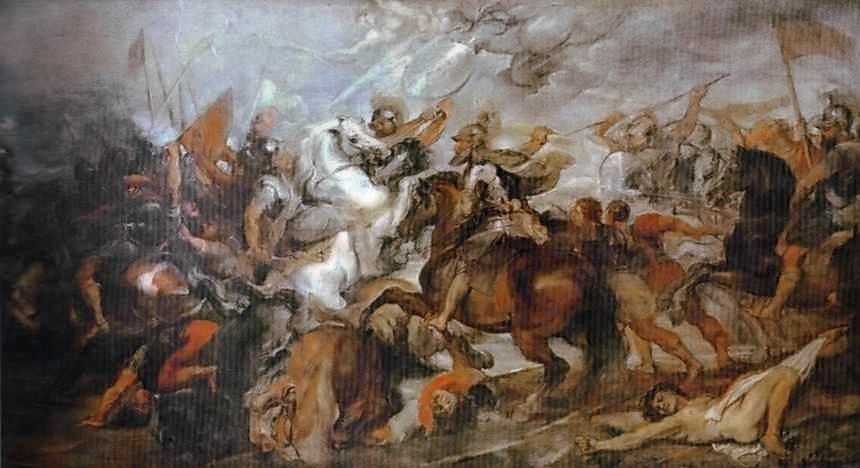|
Laurence Wright (physician)
Laurence Wright (1590–1657), was an English physician, notably physician in ordinary to Oliver Cromwell and to the Charterhouse. Biography Wright was the third son of John Wright of Wright's Bridge, near Hornchurch in Essex, was born in 1590. He matriculated a pensioner of Emmanuel College, Cambridge, in March 1608, and proceeded B.A. the following year. He entered as a medical student at Leyden on 22 August 1612, but graduated M.A. at Cambridge in 1618. He was admitted a candidate of the Royal College of Physicians The Royal College of Physicians of London, commonly referred to simply as the Royal College of Physicians (RCP), is a British professional membership body dedicated to improving the practice of medicine, chiefly through the accreditation of ph ... on 22 December 1618, elected fellow on 22 December 1622, censor in 1628 and 1639, named an elect on 24 May 1642, conciliarius in 1647, and again from 1650 annually till his death in 1657. Wright was a physician in ... [...More Info...] [...Related Items...] OR: [Wikipedia] [Google] [Baidu] |
Oliver Cromwell
Oliver Cromwell (25 April 15993 September 1658) was an English statesman, politician and soldier, widely regarded as one of the most important figures in British history. He came to prominence during the Wars of the Three Kingdoms, initially as a senior commander in the Parliamentarian army and latterly as a politician. A leading advocate of the execution of Charles I in January 1649, which led to the establishment of the Commonwealth of England, Cromwell ruled as Lord Protector from December 1653 until his death. Although elected Member of Parliament (MP) for Huntingdon in 1628, much of Cromwell's life prior to 1640 was marked by financial and personal failure. He briefly contemplated emigration to New England, but became a religious Independent in the 1630s and thereafter believed his successes were the result of divine providence. In 1640 he was returned as MP for Cambridge in the Short and Long Parliaments. He joined the Parliamentarian army when the First Engl ... [...More Info...] [...Related Items...] OR: [Wikipedia] [Google] [Baidu] |
Hornchurch
Hornchurch is a suburban town in East London in the London Borough of Havering. It is located east-northeast of Charing Cross. It comprises a number of shopping streets and a large residential area. It historically formed a large ancient parish in the county of Essex that became the manor and liberty of Havering. The economic history of Hornchurch is underpinned by a shift away from agriculture to other industries with the growing significance of nearby Romford as a market town and centre of administration. As part of the suburban growth of London in the 20th century, Hornchurch significantly expanded and increased in population, becoming an urban district in 1926 and has formed part of Greater London since 1965. It is the location of Queen's Theatre, Havering Sixth Form College and Havering College of Further and Higher Education. History Toponymy According to Mills, Hornchurch is first recorded in English in 1233 as ''Hornechurch'' and means 'church with horn-like gab ... [...More Info...] [...Related Items...] OR: [Wikipedia] [Google] [Baidu] |
Emmanuel College, Cambridge
Emmanuel College is a constituent college of the University of Cambridge. The college was founded in 1584 by Sir Walter Mildmay, Chancellor of the Exchequer to Elizabeth I. The site on which the college sits was once a priory for Dominican monks, and the College Hall is built on the foundations of the monastery's nave. Emmanuel is one of the 16 "old colleges", which were founded before the 17th century. Emmanuel today is one of the larger Cambridge colleges; it has around 500 undergraduates, reading almost every subject taught within the University, and around 200 postgraduates. Among Emmanuel's notable alumni are Thomas Young, John Harvard, Graham Chapman and Sebastian Faulks. Three members of Emmanuel College have received Nobel Prizes: Ronald Norrish, George Porter (both Chemistry, 1967) and Frederick Hopkins (Medicine, 1929). In every year from 1998 until 2016, Emmanuel was among the top five colleges in the Tompkins Table, which ranks colleges according to end-of-year ... [...More Info...] [...Related Items...] OR: [Wikipedia] [Google] [Baidu] |
Royal College Of Physicians
The Royal College of Physicians of London, commonly referred to simply as the Royal College of Physicians (RCP), is a British professional membership body dedicated to improving the practice of medicine, chiefly through the accreditation of physicians by examination. Founded by royal charter from King Henry VIII in 1518, as the College of Physicians, the RCP is the oldest medical college in England. The RCP's home in Regent's Park is one of the few post-war buildings to be listed at Grade I. In 2016 it was announced that the RCP was to open new premises in Liverpool at The Spine, a new building in the Liverpool Knowledge Quarter. The Spine opened in May 2021. History The college was incorporated as "the President and College or Commonalty of the Faculty of Physic in London" when it received a royal charter in 1518, affirmed by Act of Parliament in 1523. It is not known when the name "Royal College of Physicians of London" was first assumed or granted. It came into use aft ... [...More Info...] [...Related Items...] OR: [Wikipedia] [Google] [Baidu] |
South Weald
South Weald is a mainly farmland and park settlement and former civil parish, on the western edge of Brentwood, in the Brentwood district, in Essex, England. The civil parish of South Weald was absorbed by Brentwood Urban District in 1934. In 1931 the civil parish had a population of 6370. South Weald contains Weald Country Park, among its former mansion's residents was Octavius Coope brewer founding Ind Coope and who was for three different seats a national-level politician (MP) for one year each seat. North Weald is centred northwest. Origin Though only 18 miles from London, the large parish of South Weald even today retains a strongly rural character. The name ‘Weald’ means forest, and in early times the parish lay in one of the most wooded parts of Essex. Today, perhaps South Weald is most known to locals due to the Weald Country Parks. With South Weald being such a large parish (over 5,000 acres) it was inevitable that small hamlets should grow up in addition ... [...More Info...] [...Related Items...] OR: [Wikipedia] [Google] [Baidu] |
Sir Henry Wright, 1st Baronet
Sir Henry Wright, 1st Baronet (c. 1637–1664) was a member of parliament for Harwich in the parliaments of 1660 and 1661. Biography Henry Wright was the only surviving son and heir of Laurence Wright (c. 1590–1657) M.D., of London, and of Dagenham, and Mary, daughter of John Duke M.D., of Toulton Hall, in Ramsey and of Colchester, Essex, was born about 1637. Wright was added to the trade committee of the Council of State on 5 February 1656, He succeeded to his father's estate on his father's death on 3 October 1657, for whose services as physician to the Lord Protector Oliver Cromwell, presumably, Henry was created a baronet by the Lord Protector on 10 April 1658, a dignity which, was disallowed after the Restoration in May 1660. However a few weeks later Wright was, notwithstanding his recent recognition of the late government, again created a baronet on 11 June 1660 by King Charles II. It is not easy to conjecture what service he had rendered to be thus highly favoured ... [...More Info...] [...Related Items...] OR: [Wikipedia] [Google] [Baidu] |
1590 Births
Events January–March * January 6 – García Hurtado de Mendoza becomes the new Viceroy of Peru (nominally including most of South America except for Brazil). He will serve until 1596. * January 10 – Construction of the Fortezza Nuova around the city of Livorno begins in Italy in the Grand Duchy of Tuscany on the orders of Ferdinando I de' Medici, Grand Duke of Tuscany and continues for more than 14 years. * January 25 – Luis de Velasco y Castilla, Marquess of Salinas, becomes the new Viceroy of New Spain, a colony comprising most of Central America, Mexico and what is now a large part of the southwestern United States. Velasco will govern until 1595, and then again from 1607 to 1611. * February 3 – Peter Ernst I von Mansfeld-Vorderort, the German-born commander of the Spanish Imperial Army captures the German fortress of Rheinberg after a four-year long siege during the Eighty Years' War. * March 4 – Maurice of Nassau, Prince of ... [...More Info...] [...Related Items...] OR: [Wikipedia] [Google] [Baidu] |
1657 Deaths
Events January–March * January 8 – Miles Sindercombe and his group of disaffected Levellers are betrayed in their attempt to assassinate Oliver Cromwell by blowing up the Palace of Whitehall in London and are arrested. * January 29 – Rule of the Major-Generals (regional military government) in England is abolished. * February 4 – Resettlement of the Jews in England: Oliver Cromwell gives Antonio Fernandez Carvajal the assurance of the right of Jews to remain in England. * February 23 – In England, the ''Humble Petition and Advice'' offers Lord Protector Cromwell the crown. * March 2 – The Great Fire of Meireki in Edo, Japan, destroys most of the city and damages Edo Castle, killing an estimated 100,000 people. * March 23 – Anglo-Spanish War (1654–60): By the Treaty of Paris, France and England form an alliance against Spain; England will receive Dunkirk. April–June * April 20 ** Anglo-Spanish War – Battle ... [...More Info...] [...Related Items...] OR: [Wikipedia] [Google] [Baidu] |
17th-century English Medical Doctors
The 17th century lasted from January 1, 1601 (represented by the Roman numerals MDCI), to December 31, 1700 (MDCC). It falls into the early modern period of Europe and in that continent (whose impact on the world was increasing) was characterized by the Baroque cultural movement, the latter part of the Spanish Golden Age, the Dutch Golden Age, the French ''Grand Siècle'' dominated by Louis XIV, the Scientific Revolution, the world's first public company and megacorporation known as the Dutch East India Company, and according to some historians, the General Crisis. From the mid-17th century, European politics were increasingly dominated by the Kingdom of France of Louis XIV, where royal power was solidified domestically in the civil war of the Fronde. The semi-feudal territorial French nobility was weakened and subjugated to the power of an absolute monarchy through the reinvention of the Palace of Versailles from a hunting lodge to a gilded prison, in which a greatly expanded ro ... [...More Info...] [...Related Items...] OR: [Wikipedia] [Google] [Baidu] |
People From Hornchurch
The term "the people" refers to the public or common mass of people of a polity. As such it is a concept of human rights law, international law as well as constitutional law, particularly used for claims of popular sovereignty. In contrast, a people is any plurality of persons considered as a whole. Used in politics and law, the term "a people" refers to the collective or community of an ethnic group or nation. Concepts Legal Chapter One, Article One of the Charter of the United Nations states that "peoples" have the right to self-determination. Though the mere status as peoples and the right to self-determination, as for example in the case of Indigenous peoples (''peoples'', as in all groups of indigenous people, not merely all indigenous persons as in ''indigenous people''), does not automatically provide for independent sovereignty and therefore secession. Indeed, judge Ivor Jennings identified the inherent problems in the right of "peoples" to self-determination, ... [...More Info...] [...Related Items...] OR: [Wikipedia] [Google] [Baidu] |




